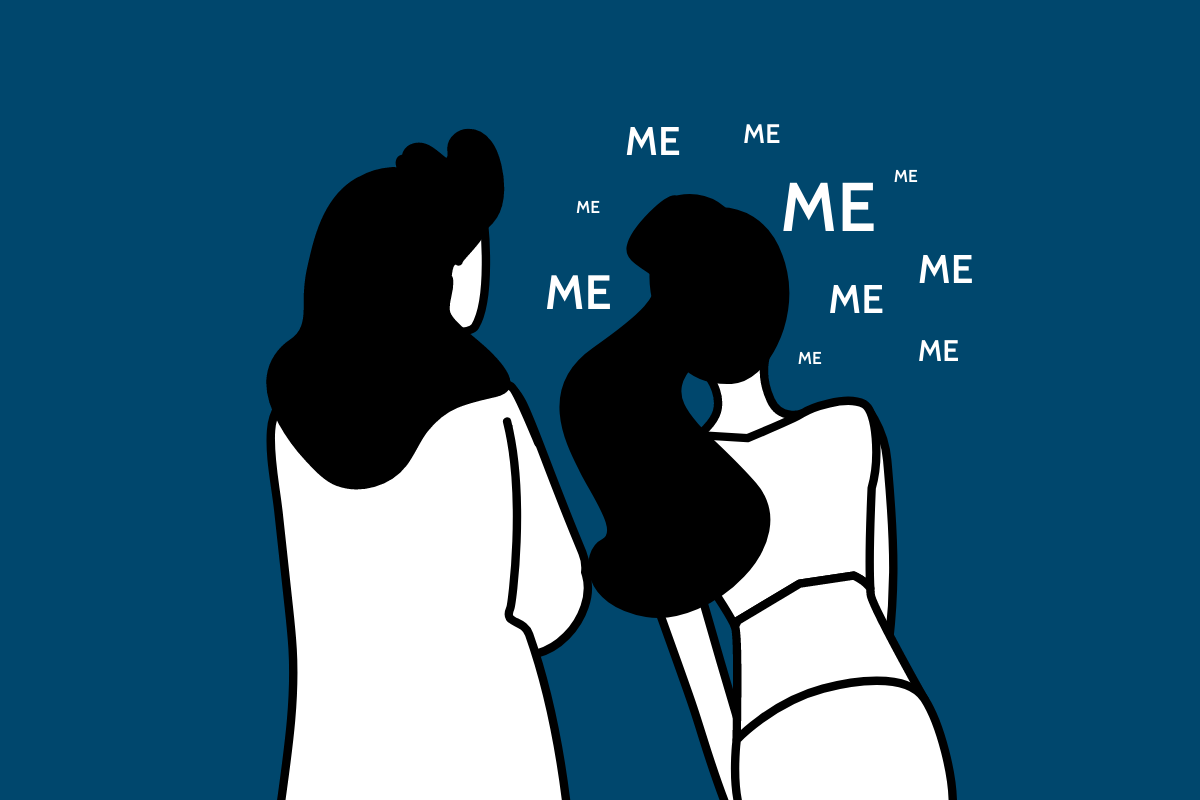All posts
What to do When Your Friend Only Talks About Themselves
Are your conversations with your friend a little one-sided? Do they talk about their lives and problems without showing any interest in yours? Relationships are all about give and take. It’s normal for there to be times when one person is in a crisis and needs more focus and support than the other – after […]


Are your conversations with your friend a little one-sided? Do they talk about their lives and problems without showing any interest in yours?
Relationships are all about give and take. It’s normal for there to be times when one person is in a crisis and needs more focus and support than the other – after all, being a good listener is part of being a good friend. But in general, a friendship should be based on mutual support.
It can be draining to feel like the emotional dumping ground for a friend, especially if the favour isn’t returned when you need a shoulder to lean on.
We hope these tips help you maintain a healthier, more balanced friendship if your friend only talks about themselves.
Consider why
Ask yourself why they might be preoccupied with their own stuff.
Are they going through a hard time? Do they not have many other friends to confide in? Could they be anxious to fill awkward silences? Maybe they’re lacking social skills? Or perhaps they’re simply self-absorbed?
Thinking about what might be going on behind the scenes can help you gain understanding and empathy. It can also help you consider whether the relationship is toxic and worth maintaining or not.
Focus on common interests
As friends, it’s likely you have at least one shared interest you can dive into.
Maybe it’s a favourite band or TV show, a love for a sport or fitness in general, or simply a shared passion for good food and good times. Whatever it is, try to steer the conversation to this topic. It might seem surface-level at first, but it could lead to a deeper chat.
By talking about mutual interests, you both get to contribute your thoughts and feelings about topics you enjoy.
Get personal
Do you volunteer personal information? Are you willing to share as much as they share?
If not, your friend might see you as a ‘listener’. You can break out of this role by opening up some more without waiting to be asked.
If you’re comfortable, show your friend you’re willing to be vulnerable and let them in. They’ll likely show an interest and want to be there for you.
Ask for their opinion
Does your friend find a way to make every topic about them?
Asking your friend their opinion on an issue is a good way to talk about yourself while making them feel important and included.
For example, instead of telling them you’re enrolling in art classes, ask them if they think you should enrol in art classes. You don’t have to take their advice on board, but it’s an easy way to turn their attention to something you want to talk about.
Tell them how you’re feeling
If your friend cares about you and you enjoy spending time with them, it might be worth addressing the issue so you can move forward and maintain the relationship in a way that works for both of you.
If you don’t feel like you’re getting anything from the relationship, or your friend is unwilling to change, there’s nothing wrong with distancing yourself and saving your energy for the friendships you benefit from.
For more help maintaining healthy relationships, you might like our article How to Set Boundaries in Relationships.
Back to all posts